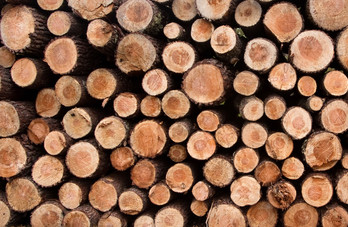Dutch scientists use dna testing to identify illegally logged wood
 Researchers at Wageningen University are using dna testing to help identify tropical hardwood which has been cut down illegally.
Researchers at Wageningen University are using dna testing to help identify tropical hardwood which has been cut down illegally.
Around 30 to 90% of all tropical hardwood is logged illegally, and checks on the origin of wood, however thorough, are not particularly effective because documentation may be fraudulent, the university says.
The new method identifies the wood’s dna and is precise enough to differentiate between trees cut down in places that are practically next door to each other. This is important because position can mark the difference between legal and illegally logged wood.
‘The fact that we can accurately differentiate the origin of timber down to a 14 km radius is new,’ says lead author Mart Vlam of the Forest Ecology and Forest Management Research Group at Wageningen University. ‘Previous studies only managed to do that on a much less refined scale.’
The research involved collecting several hundred timber samples in five timber concessions in Cameroon and Congo-Brazzaville together with two logging companies. These samples were used to create a reference-database.
‘We ran a blind test on some of the samples,’ says Vlam. ‘I had 12 pieces of timber of which I knew the origin but the genetic specialists at Wageningen Environmental Research didn’t. I gave them the samples and asked them to identify which concessions they came from. They got it right 92% of the time – that’s a great score.’
This study demonstrates that genetic analysis has great potential for use in forensic testing of tropical hardwood.
‘But a lot needs to be done before these tests can be used as evidence in court,’says lead researcher Pieter Zuidema. ‘We need to collect timber samples from a much larger area and our analyses and labs will have to meet strict criteria. We can’t do that on our own, so we are collaborating in a worldwide network of researchers, labs and authorities.’
Thank you for donating to DutchNews.nl.
We could not provide the Dutch News service, and keep it free of charge, without the generous support of our readers. Your donations allow us to report on issues you tell us matter, and provide you with a summary of the most important Dutch news each day.
Make a donation